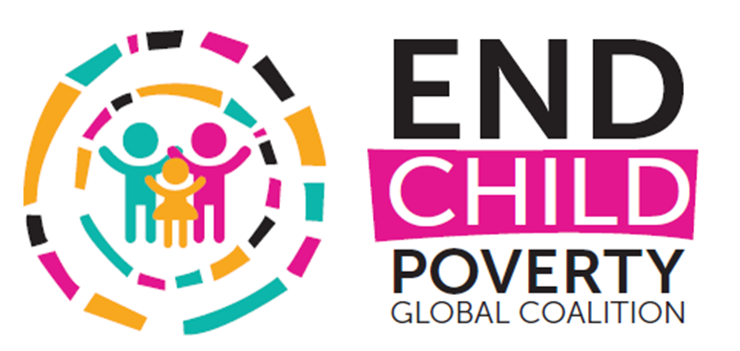We, at African Child Policy Forum, make this call amidst the mounting vulnerability of African children brought about by the worrying spread of the COVID-19 pandemic in every African country and;
Concerned that the increasing deaths would lead to a large number of children losing their parents and caregivers;
Aware of the fact that millions of African families live under extreme poverty;
Recognising that social protection and community safety nets are nearly totally absent, leading to children suffering from hunger, malnutrition and ill health;
Considering that the widespread closure of schools and child care centres has effectively excluded children from basic services that were made available in those facilities, such as school feeding schemes;
Troubled by the fact that, schools, as safe havens, are closed, exposing children, especially girls, to multiple forms of violence and abuse including corporal punishment, sexual violence and labour exploitation;
Noting that incidents of domestic and intimate partner violence are increasing and will have a severe impact on children’s psychological wellbeing;
Being particularly concerned that the multiplied effect of the above vulnerabilities is likely to have a disproportionately adverse impact on vulnerable children, including girls, children with disabilities, children living on the street, child domestic workers, children in institutional care and in refugee camps;
We urgently call upon all stakeholders to take decisive and coordinated measures to ensure that children and families are protected from the immediate and long-term impacts of the pandemic.
We call upon African governments to:
Adopt a human rights approach dictated by the principle of ‘the best interests of the child’ in all their efforts to respond to the pandemic.
Prioritise children’s rights to food, health, education, adequate protection, psychosocial support, information and family environment within the response efforts of all governments.
Ensure that measures related to social distancing, quarantines, and partial or full lockdowns are child-friendly, cognisant of the capacity and vulnerability of children.
Rapidly scale up economic safety net programs such as cash transfers, paid leave, and free or subsidised health services.
Urgently ensure that children who are deprived of parental care due to death, quarantine or lockdowns receive appropriate care, support and protection services.
Reinforce multi-sectoral child protection systems to make services available to all children at increased risk of abuse, violence and exploitation, particularly those already in vulnerable circumstances.
Adopt policies and interventions to combat emerging psychosocial and mental health problems, including by expanding public awareness campaigns, providing information and availing psychosocial services.
Ensure that, while focusing on measures to combat COVID-19, other health issues affecting children, such as immunisation, malaria, tuberculosis, HIV/AIDS and other childhood illnesses, are not neglected.
We call upon the African Union and its organs to:
Coordinate and intensify efforts at all levels in the fight against the pandemic, including by using its political and organisational leverage to mobilise resources from within and outside.
Provide extra support to governments in post-conflict and fragile situations, particularly in equipping their healthcare infrastructure in their response efforts.
Provide technical support to Member States as they implement the ACERWC Guiding Note on COVID-19.
We call upon the Regional Economic Communities to:
Coordinate efforts in the fight against the pandemic within their respective regions, including by mobilising resources and facilitating burden sharing among countries.
Ensure that there is cross-country collaboration and co-ordination in the fight against the pandemic, including in the protection of refugee and stateless children.
We call upon the private sector and African philanthropies to:
Support governments financially, technically and operationally in their efforts to provide basic necessities such as food and healthcare for vulnerable households.
Support governments in procurement and production of medical equipment and facilities.
Facilitate access to information and educational materials through affordable internet and mass media.
We call upon the international community, development partners and the UN to:
Provide financial and technical support to African governments and civil society organisations to enable effective response to the pandemic and to mitigate its economic impact, including through debt relief and emergency borrowing facilities.
Scale up existing support to vulnerable households, including cash transfers, food safety-nets and school feeding programmes.
We call upon parents and caregivers to:
Engage in open, age-appropriate discussions on the pandemic with children.
Proactively help their children in infection prevention, in safeguarding their psychological wellbeing, and in exercising their right to play in a safe and supportive environment.
Provide educational support to children to continue learning at home and/or seek support from government to do so.
We call upon the media to:
Produce and disseminate accurate information to children and parents on the pandemic.
Broadcast educational programmes to help children continue learning during this time of school closures.
Review media contents in light of their immediate and long-term psychological impact on children.
We call upon civil society organisations to:
Actively engage in partnership with governments to develop practical solutions that reflect the African reality.
Adapt and promote pro-child models of good practices from other countries.
Support government efforts by mobilising the general public to adhere to hygiene and distancing measures noting that a safe and healthy environment has significant benefits for children.
The COVID-19 pandemic is the single most important challenge facing African children today. It is life-threatening economically and socially devastating. Our success in mitigating its impact on children now will have serious implications for our collective future stability and wellbeing as a continent.
THE TIME TO ACT IS NOW!
African Child Policy Forum (ACPF) | 21 April 2020 | Addis Ababa, Ethiopia

